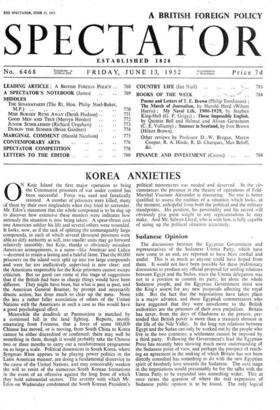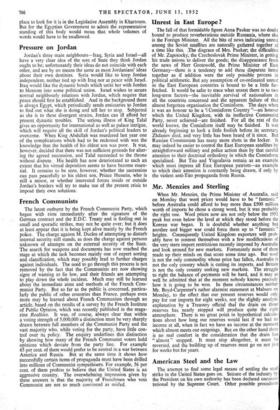The discussions between the Egyptian Government and' representatives of the
Sudanese Umma Party, which have now come to an end, are reported to have been cordial and useful. This is as much as anyone could have hoped from them. It would not have been possible for these preliminary discussions to produce any official proposal for settling relations between Egypt and the Sudan, since the Umma delegation was not in a position to commit its party, let alone the whole Sudanese people, and the Egyptian Government must win the King's assent for any new proposals affecting the royal title. But the fact that the negotiations have taken place is a major advance, and those Egyptiart commentators who have suggested that they were unwelcome to the British authorities are the prisoners of their own prejudices. Britain has never, from the days of Gladstone to the present, pre- tended that British power is more than a transient element in the life of the Nile Valley. In the long run relations between Egypt and the Sudan can only be worked out by the people who live in the two countries; a settlement cannot be imposed by a third party. Following the Government's lead the Egyptian Press has recently been showing much more understanding of the Sudanese point of view, and perhaps the prospect of reach- ing an agreement in the making of which Britain has not been directly consulted has something to do with the new Egyptian spirit of brotherly love towards the Sudanese. The next stage in the negotiations would presumably be for the talks with the Umma Party to be expanded into something wider. This at once raises the question of where the real expression of Sudanese public opinion is to be found. The only logical place to look for it is in the Legislative Assembly in Khartoum. But for the Egyptian Government to admit the representative standing of this body would mean that whole volumes of words would have to be swallowed.



































